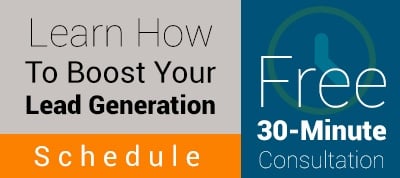
HubSpot's 2016 Sales Perception Survey has some real eye-openers for B2B sellers. If you have any doubt that the buyer is completely in control of the sales process, this will disabuse you of that notion. Simply put, most B2B sellers are not in sync with how their buyers want to buy.
Let's take a look at what buyers say about the B2B buying process and how you can evolve your sales process to give buyers what they want.
Inbound marketing channels are important both in the consideration and decision stages
Here's where buyers said they go for information both when they wanted to learn more about a particular solution and also when they were ready to buy,

What I found most interesting was that the top 2 information sources were the same for both the consideration and decision stages: search engine queries and visits to the seller's website. The only major difference in the two buying stages was the third most frequently accessed information source:
- Buyers gathering information identified newsletters and emails as the third most important information source.
- Buyers who are ready to buy looked to connect with sales reps.
Here's the implication for sellers: if they don't find you when they're looking for more information, they're not going to look to connect with you when they're ready to buy!
This clearly indicates how important inbound marketing is to the B2B sales process. To get found by search engines, you need to be creating relevant educational topic around the problems you're buyers are looking to solve. Successful B2B sellers are using blogs, eBooks, whitepapers, webinars and videos to get on buyer's radar screens before they're ready to buy.
This also indicates how important it is to have a professional, buyer-centric website for B2B sellers. Let's say a potential buyer does find you when they're looking for information. When they come to your website, they see a static piece of brochureware that talks about you and you only. Guess what, you're not going to get the call when they're ready to buy.
Can you buy your way into the buyer's consideration funnel? It depends on what you're selling. If you're selling software, search engine advertising can be an effective way to get found as buyer's are drawing up their short lists.
If you're selling professional services, not so much. If a buyer searches for "How can I reduce my business taxes?", do you think they will click on paid advertising to speak with a tax specialist or will they read an article titled, "5 Effective Ways To Reduce Business Taxes." We will supply some data below that will answer that question for you.
There's a reason that cold-calling and email prospecting have such low conversion rates. Unless your call or email reaches a buyer at the time they're looking for the information you're communicating, they will most likely ignore it.
When asked when they would like to connect with a sales professional, 80% of buyers said, either "after I've researched and have a shortlist" or "after I've reviewed my shortlist and am ready to buy." Only 19% said, "when I'm first learning about the product."
That last finding displays why having an effective inbound marketing program is so important for B2B sellers.
The disconnect between buyer goals and seller goals in the sales process
What buyers and sellers look to achieve in the first sales call are two entirely different things. Let's take a look at the data.

The top three things the seller wants to talk about are:
-
What the buyer is trying to achieve with the purpose
-
Why the buyers needs to make the purchase
-
The buyer company's overall goals
Needless to say, that's not what the buyer wants to talk about. Their wants are much more basic:
-
Pricing
-
How the product works
-
What the buyer is trying to acheive with the purpose
So what can sellers do to make the first sales interaction more productive for both parties? Here are some thoughts:
-
To the extent possible, publish pricing information on your website. Not only does it give buyers what they're looking for, it shows transparency and establishes trust. For software companies, it's not even a consideration - most will show the three most popular variations of their software product. For professional services, it's a little bit more difficult. In our business, we publish pricing for three popular monthly retainer packages. Every client negotiates an individual retainer, but we want to give people an expectation of the range of prices that we typically charge. The other thing that this does is qualify out those potential buyers that don't have the budget to work with us.
-
The same thing goes about product/service information - publish it on your website! By giving thorough information on your products and services, you give yourself the opporutnity to talk about other things when you do have the sales conversation.
-
The seller's value to buyers in the modern B2B buying process is as an advisor, teaching and challenging potential buyers about important considerations they haven't considered. Use the buyer's questions about pricing and product information to introduce topics and ask questions that go beyond the basic. HubSpot gives this example: "if a buyer wants to talk features, pivot that conversation into how they'd use those features to achieve their overall goals. If a buyer wants to get straight to the price, a salesperson can use that as a chance to expand the conversation to review other costs -- like time and resources -- that go along with pricing. Ask the buyer if they have those resources ready rather than focusing solely on the product’s price point."
As this research clearly proves, inbound marketing is a crucial element of the B2B sales process. An effective inbound marketing program will attract buyers to your website and get you on their shortlist when they're formulating purchase decisions. But inbound marketing isn't enough. Sellers need to adapt their sales process to the modern buying process, using technology to provide lead intelligence that help them formulate personalized sales interactions that close deals. In order to be successful in this environment, most businesses need to change the way they market and sell. If you'd like to learn how you can adapt to the new buying paradigm, schedule a free consultation with us.







